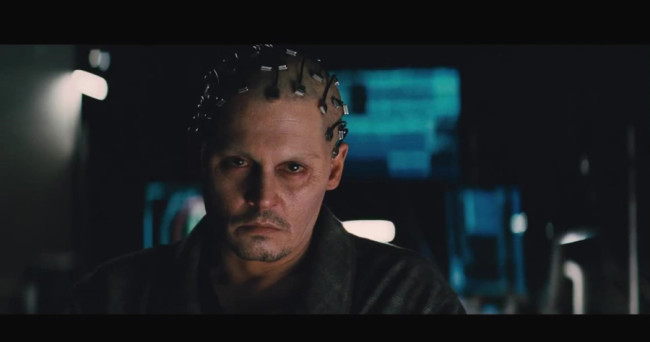
In the age of “Her” and “RoboCop” remakes, it’s hard to stand out among technology-based sci-fi features films. “Transcendence” does just that, with an original plot, blockbuster cast and creative CGI.
In Wally Pfister’s directorial debut, Will Caster (Johnny Depp), a leader in artificial intelligence research, is killed by a radical anti-technology organization.
Using newly developed research, he, along with his wife (Rebecca Hall) and best friend (Paul Bettany), upload his consciousness into a machine, creating a sentient piece of technology.
With supplemental roles played by Morgan Freeman and Cillian Murphy, the movie probes the line between technology and humanity.
“’Transcendence’ is not strictly an artificial intelligence movie. It features a human mind, a human consciousness, uploaded into a machine. This difference sets off an emotional journey,” Pfister said.
Pfister, who previously worked as a cinematographer with renowned director Christopher Nolan on “The Dark Knight” franchise, saw his new role on set as an enlightening challenge.
“You’re suddenly playing the psychologist,” Pfister said.
“Transcendence” asks audience members to step into that role as well, questioning the actions of the strong characters and their own personal involvement with
daily technology.
There are “no defined good guys or bad guys” in the film, according to Pfister, which allows viewers to empathize even with the radical tech-terrorists. The tension in the film leaves audience members on the edge of their seats, even in the quiet, sensitive moments that connect viewers with the characters.
The film’s cinematography is beautiful, as expected with an ex-cinematographer at the helm, but also relies on incredible CGI used in innovative ways to match the original scientific material. The film’s music and sound mixing also draws tension and emotion from characters and actions scenes that would not have been present otherwise.
The film’s premise seems absurd and, as Pfister said, is based on speculation, but there is a basis in current scientific research. While full consciousness uploads won’t be available in the near future, scientists around the world are working to map synapses and create nanotechnology used in limb regeneration.
“I went on a college tour in spring 2012, stopping at Massachusetts Institute of Technology to talk to professors researching nanotechonology, neurobiology, robotics and media lab projections. I went to Stanford and then to Berkley, finally finding two professors who worked as full time consultants, vetting the science and medical components of the film,” Pfister said.
“Transcendence” seen through the eyes of these scientists is in fact plausible, said Pfister, but audiences need to “remember the ‘fi’ in sci-fi.”
The movie ends with a giant question mark, the kind of open ending that drives viewers crazy, but pushes them to really consider the film’s purpose.
“The film is a wink at the idea that it’s not a bad idea to turn off these devices and embrace nature,” Pfister said.
“Transcendence” opens Friday.










